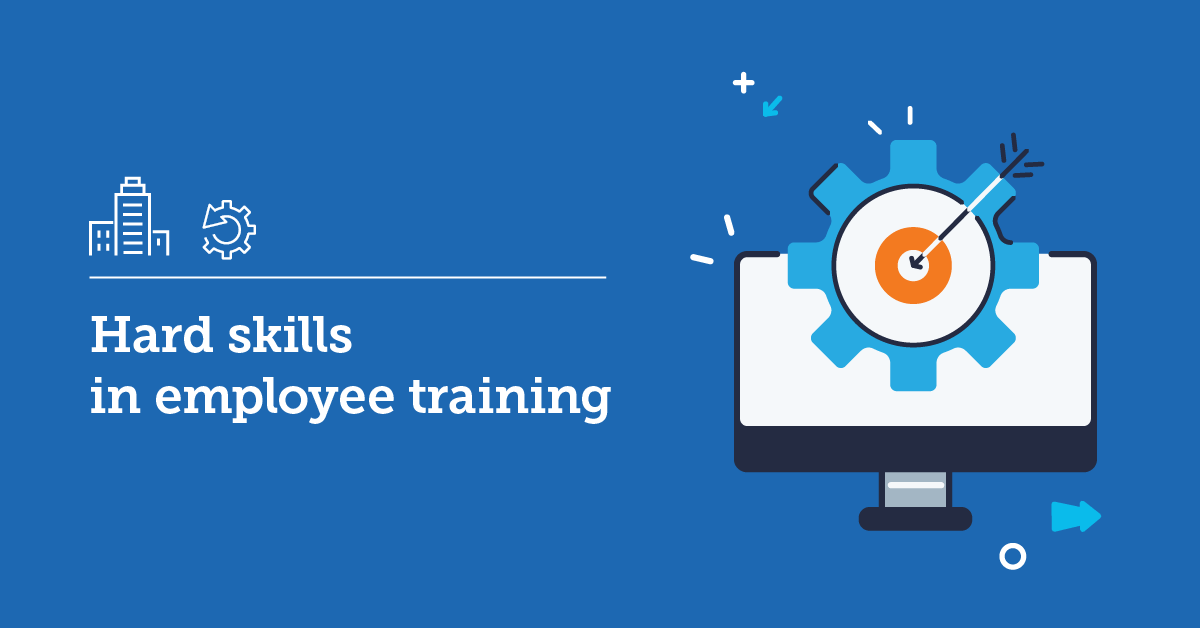Lately, more and more people are focusing on soft skills when it comes to employee training. And that’s great!
Soft skills training is really a game-changer when it comes to building an emotionally intelligent team that can collaborate well. Without soft skills training, it will become increasingly hard for your team to connect to your audience, adapt to industry changes, or contribute to a better company culture.
But what about hard skills?
In this article, we’ll discuss why hard skills are essential to employee training and highlight the most important ones.
First things first: what are hard skills?
Hard skills, also known as “technical skills”, are the skills necessary to complete specific tasks needed in a business. As you can imagine, hard skills are rather industry-specific. As a general definition, however, we can say that hard skills are those that require some specialized knowledge and/or technical abilities.
Examples of hard skills include computer software competence, specific technical qualifications, customer service, tax accounting, etc.
Why are hard skills important in employee training?
Hard skills are the backbone of your employee’s skill set.
Think of it as a house. Soft skills are the furnishings, decor items, and personal touches that make a house a home people want to live in. But hard skills are the electrical appliances and wiring that make the house habitable, to begin with.
Without hard skills, you can’t keep the lights on — neither in the house of the above analogy nor in your business.
But wait, aren’t hard skills something your employees should already come “equipped” with? Yes — and no.
Some industry-specific hard skills require in-depth training that most people have already completed before applying for a job. However, most hard skills can (and should) be part of your ongoing training. As this Training Industry article points out, hard skills training gives your employees all the vital knowledge and skills that they need to actually get the job done.
Another reason hard skills are important in employee training is that technologies and processes evolve all the time. You want to have a team that is familiar with the latest updates in software systems, or that can handle a variety of new tools, right?
Plus, as hard skills are tied to the day-to-day operations of your company and its key KPIs, it’s usually easier to measure the effectiveness of your training program. You can then use these learnings to tweak your employee training process overall.
Hard skills training made easy with TalentLMS
The training platform that users consistently rank #1.
Easy to set up, easy to use, easy to customize.
Which hard skills should you train your employees on?
Now that you know why you should be including hard skills in your employee training, let’s look at which hard skills you should be focusing on.
We’ve already seen how some hard skills are very industry-specific. If you run a SaaS business you’ll most likely require a different (hard) skill set than if your company sells physical products, for instance.
Another thing to consider is that hard skills training is more targeted than soft skills training. This means you should consider carefully which people from your team would most benefit from developing certain hard skills. That being said, if some of your employees are interested in reskilling or upskilling (as many do lately), it’s a good idea to include them in hard skills training.
So what are the most useful skills in the hard skills list that you should be gearing your training towards? LinkedIn’s annual list of the most in-demand skills features several well-established hard skills such as analytical reasoning and cloud computing but also some surprising new entries like blockchain.
Below we created a list that comprises both industry-specific and broader hard skills to train your employees at.
Analytical reasoning
This is one of the most important hard skills regardless of an employee’s line of work. Analytical reasoning is quite overarching, including things that can also be considered soft skills, like critical thinking. But at its core, analytical reasoning is the ability to understand data and draw conclusions from it.
You definitely want that for your employees!
Blockchain
At first glance, it may seem odd that blockchain topped LinkedIn’s annual list of the most in-demand skills. But it makes sense if you think about it. The latest developments in fintech are rapidly changing the way people approach money and banking. Having people on your team who know how to store, validate, and move digital assets online can be very useful.
Customer service skills
In the hard skills list, customer service skills rank consistently high. This is no accident: people interact with brands differently nowadays. For 84% of consumers, the overall brand experience has become as important as the actual products or services.
As more and more aspects of a business become customer-facing, the importance of training your employees in customer service skills grows.
Scientific computing
Although highly specialized, the ability to use programming languages to apply analytical approaches to large data sets is increasingly sought after. Advanced computing skills can also help with solving mathematical and theoretical problems, and eventually contributing to decision-making.
Cloud computing
Which company nowadays isn’t run on the cloud? At least to some extent.
As CEO of LEADx Kevin Kruse points out in this Forbes article, being able to maintain cloud architecture on platforms like Azure is a very in-demand skill. So, it makes sense to include cloud computing in your hard skills employee training program.
UX design
With the average attention span of consumers decreasing every year, intuitive (and optimized for mobile) design becomes crucial for connecting with your audience. And as far as hard skills go, UX design is relatively easy to teach.
It’s also a very important hard skill to offer continuous training in, as devices and best practices keep changing.
Sales skills
Sales training is sometimes thought to be in the soft skills side of things. But although there are many soft skills related to being a great salesperson, there’s also a hard skills aspect to it. For example, your sales team members should become familiar with clients, products, and processes. They should also learn how to use and maintain a CRM system. Whether it focuses on soft skills or hard skills, sales training is one of the core training subjects for most businesses.
Conclusion
Providing your employees with continuous, hard skills training is important for ensuring your company runs smoothly and you’re hitting your KPIs. It’s also important because it ensures your team stays sharp and relevant despite how much your industry may change in the future.
Unsure where to begin with your hard skills training? Your LMS can help you with that!
| Tags: Employee Training




![Etiquette Training: 12 Rules For Crafting Professional Emails [+Free Guide]](https://images.www.talentlms.com/blog/wp-content/uploads/2023/03/TLMS_20230228_1200x628.png)